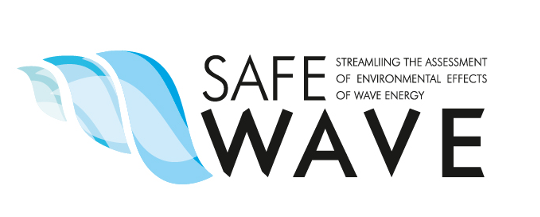
SAFEWave

- Title
-
SAFEWave: Streamlining the Assessment of environmental efFEcts of WAVE energy
- Start Date
-
October 2020
- End Date
-
September 2023
- Funding Body
-
EASME EMFF
- Coordinator
-
Dr Juan Bald, Fundación AZTI – AZTI Fundazioa, Spain
- Project Partners
-
AZTI (ES), WavEC Offshore Renewables (PT), BiMEP (ES), HIDROMOD (PT), UCC (IE), ECN (FR), CORPOWER (SE), Wello (FI) and GEPS-Techno (FR).
- Principal Investigators
-
Prof. Gregorio Iglesias, Dr Anne Marie O’Hagan and Dr Niall Dunphy
- Research Area
-
Coastal & Marine Systems, Offshore Renewable Energy and Energy Management
Introduction
Technical development of ocean energy devices is growing fast, however, the environmental effects of deployment are not yet well-known and still being documented. There can be interactions between devices and marine organisms and habitats that regulators and stakeholders perceive as ‘risky’. In many instances, this perception of risk is due to the high degree of uncertainty that results from a paucity of data collected in the ocean. The SAFEWave project addresses environmental monitoring of ocean energy devices, specifically wave energy deployments. Improving the current levels of knowledge on the environmental effects and risks of wave energy through the collection, processing, analysis and sharing of environmental data around devices operating at sea is one of the key aspects of the project together with modelling of cumulative impacts of future larger-scale wave energy deployments.
Aim
The aim of the SAFEWave project is to assist in overcoming non-technological barriers that could hinder the future development of one of the main pillars of the EU Blue Growth strategy: wave energy. The project will better inform decision-makers and managers on environmental risks, help reduce environmental and consenting uncertainty, develop country-specific licensing guidance and produce suitability maps for wave energy developments based on MSP decision support tools for most of the EU countries in the Atlantic Arc. The project will also work collaboratively with coastal communities in France, Ireland, Portugal, and Spain, to co-develop and demonstrate a framework for education and public engagement (EPE) of marine renewable energy since the deployment of ocean renewable energy technologies has the potential to evoke opposition within intended host communities. This EPE framework aims to go beyond social acceptance and be designed to contribute to the development of projects that exhibit inherent social acceptability. This work will be informed by five core dimensions of acceptability (personal and interpersonal; structural; political; market; local and community) adapted from social acceptance models.
Work Packages
WP1 Project Management
WP2 Environmental Monitoring
WP3 Environmental modelling
WP4 Data sharing platform
WP5 Risk and adaptive based consenting for wave energy deployments (led by Dr AM O’Hagan)
WP6 Wave energy development site selection under Maritime Spatial Planning framework
WP7 Education and public engagement (EPE) (led by Dr N Dunphy)
WP8 Communication and dissemination





